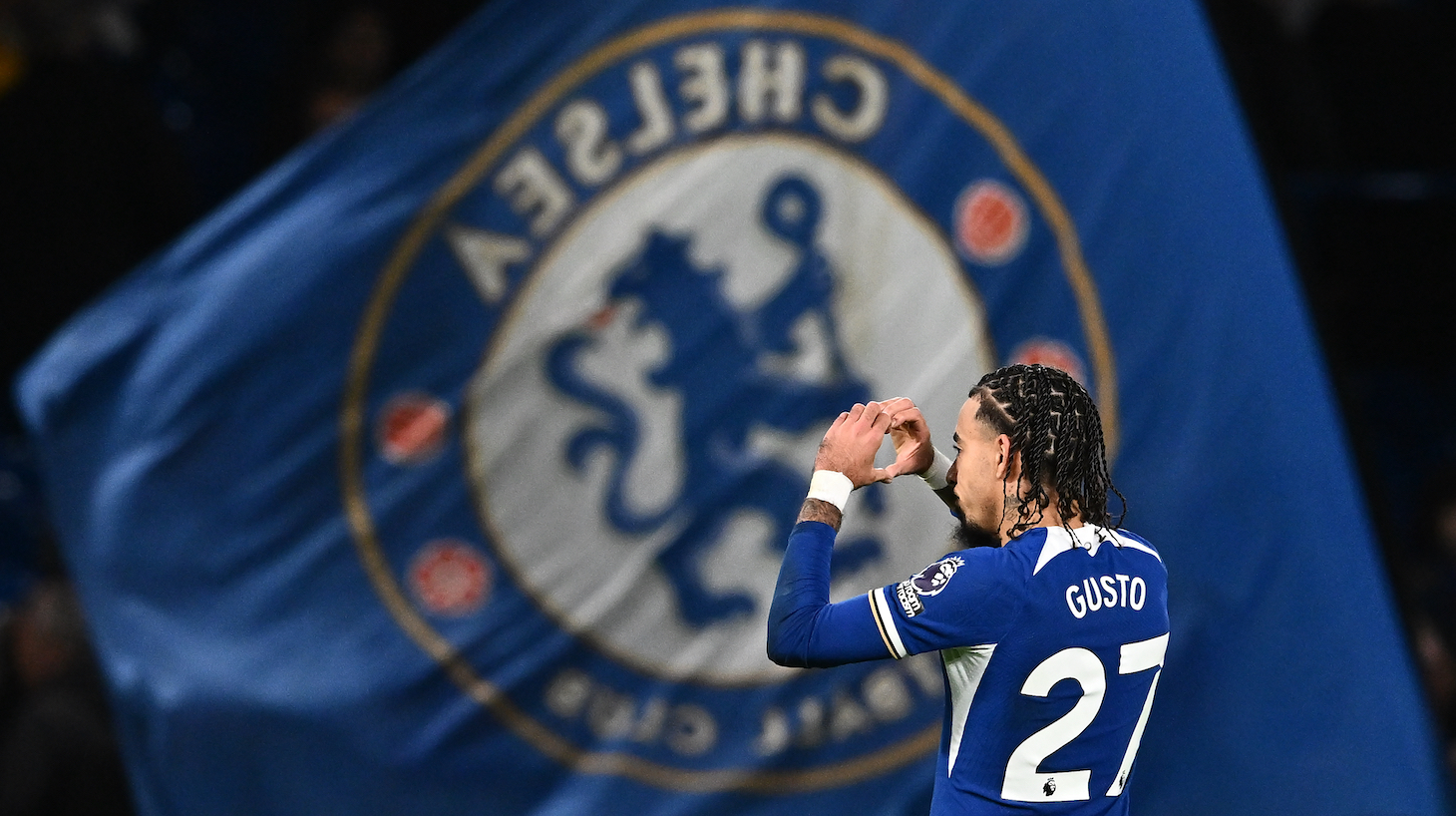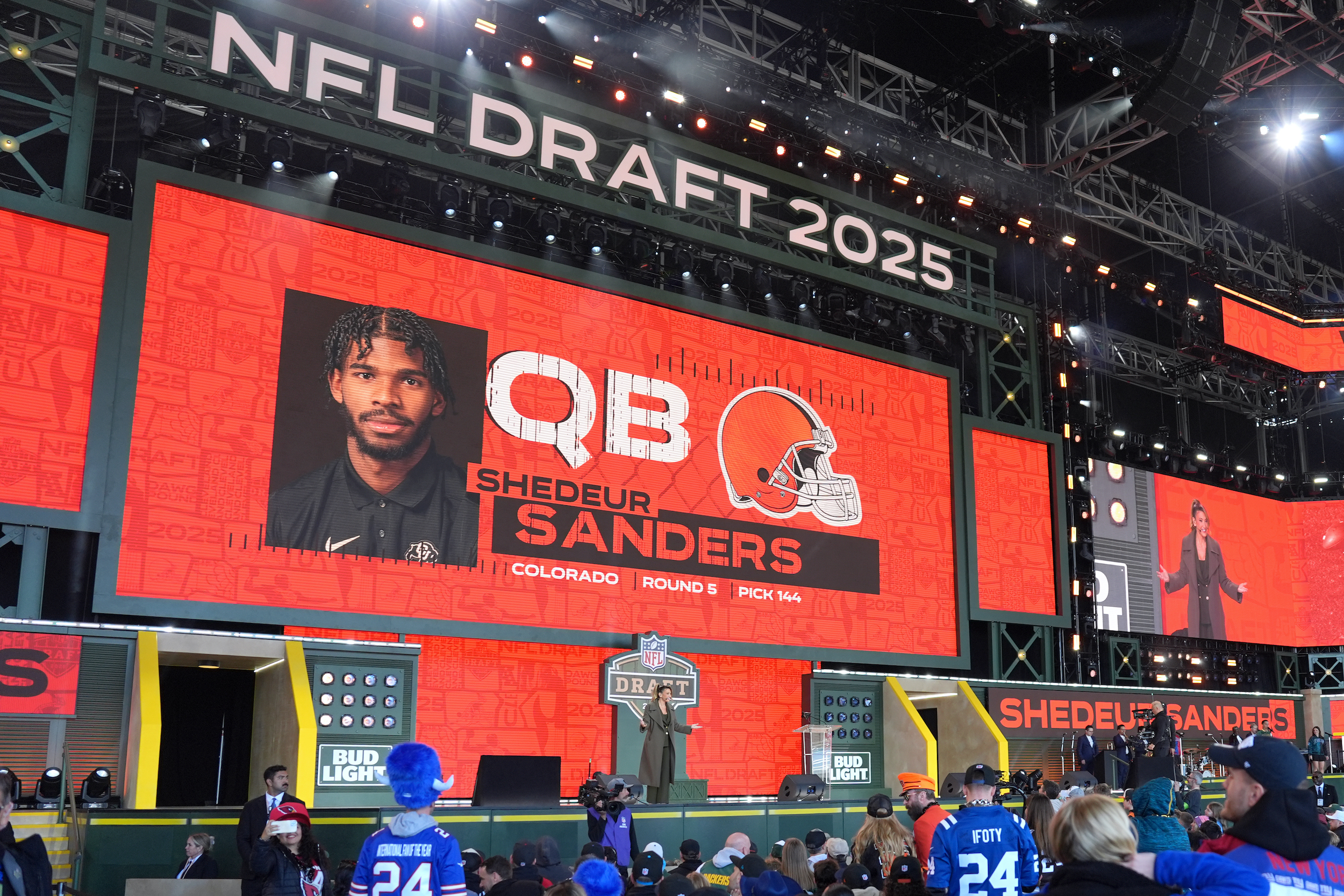Chelsea is in a state of limbo. The Blues aren't awful, but they certainly aren't good either—which is an astonishing thing to say about a club that has spent literally £1 billion on players over the last three transfer windows. The middling nature of the situation is part of what makes it so difficult to wrap your head around. On one hand, things aren't bad enough to necessitate a(nother) comprehensive house-cleaning, and if you really squint, you can kind of make out a few reasons to believe that the current group might eventually get things on track. On the other, this team is nowhere near as good as it should be, there does not appear to be much rhyme or reason the club's decision-making, and at this point it's hard to have any faith that the people in charge can assess and then fix the deep-seated problems that have led the club here.
So, after the billions Todd Boehly spent purchasing and then investing in the club, what has all that money bought Chelsea? A talent-rich roster overflowing with young stars, one of the game's elite managers, and, nevertheless, an already cemented spot in the middle of the Premier League table. A lot has gone wrong.
Even with all those transfers, the squad still has gaping holes in desperate need of filling. Chief among those holes is the lack of reliable goal scoring, which more than anything else is responsible for this doomed season. It's not that Chelsea has played poorly, and in fact the team's performances outside of the penalty boxes show marked improvement on the doldrums of last season's Thomas Tuchel and Graham Potter eras. With a great goal scorer up top, the Blues as currently constituted could've put away the chances they've created, turning solid performances into wins that would then bring confidence and trust and encouragement, which would then bring even better performances and more wins as this new bunch learns and grows together. But Chelsea doesn't have any proven goal scorers (boy, it sure was stupid to oust both Tammy Abraham and Romelu Lukaku for no good reason!), and so the team instead lives in a frustrating purgatory: more or less in control of most matches, unable to convert that control into leads, watching on in exasperation as should-be points slip away by the handful.
And they've not been much better in their own box. The defense has been mediocre, prone to unforgivable errors unbefitting a team of Chelsea's stature. This is something of a surprise. The one line where the Blues have what on paper looks like a truly world-class, complimentary array of players is in defense. Most big clubs would kill to have this kind of quality and depth: Benoît Badiashile, Levi Colwill, Wesley Fofana, Axel Disasi, Trevoh Chalobah, Reece James, Ben Chilwell, Malo Gusto, Ian Maatsen, Marc Cucurella. Injuries haven't helped. Chilwell and James have reprised their roles as superstars on the pitch whose names unfortunately appear more often on the injury list than in the starting lineups. Similarly, Fofana, Chalobah, Cucurella, and Gusto have collectively lost lots of time due to injuries. Without the full corps to choose from, especially without Chilwell and James at full back, manager Mauricio Pochettino has been forced to kludge together back lines that often shoehorn center backs into wide positions.
But part of the defensive frailty stems from Chelsea's wider squad-building problems. Though Boehly's money has bought the club several tantalizing midfielders—Moisés Caicedo, Enzo Fernández, Roméo Lavia—only Caicedo is adept at shielding his defenders. The Caicedo-Fernández partnership has the makings of an incredibly cool midfield tandem, but at present the duo lacks defensive solidity, especially behind an attacking midfield line that also isn't particularly good at offering cover for the back line. In addition, during Boehly's spending spree, no one apparently thought to make sure the team could naturally field lineups with enough players who are strong in the air to defend crosses and set plays, and to help collect second balls to disrupt opponents' possessions and maintain Chelsea's own. Aerial competence is easy to overlook amidst all the glamor and excitement about big-money, high-potential signings, but it's a crucial component a team's ability to impose its gameplan and thwart the opponent's, especially in England.
Much to some fans' ire, Pochettino has sought to compensate for this lack of cross-line heading ability by usually starting at least three, and sometimes four, tall and springy center backs along the back four. While Colwill and Disasi may be totally competent playing out of position at full back, neither offers the attacking thrust of natural full backs like Chilwell and James, both of whom are also good in the air. And even playing all those central defenders, Chelsea has routinely been victimized on set plays. The lack of foresight that led the Blues to buy and buy and buy, without stopping to think about whether it all would add up to a team capable of withstanding the kinds of aerial barrages common to the league, is but another example of how ill-considered the team's planning has been.
To an extent, none of this is new. Chelsea was once run by an involved, invested, unconscionably rich owner, who often followed his flights of fancy to pursue wildly expensive signings without worrying too much about whether it all fit together, who would not hesitate for a second to shit-can a celebrated manager once results start to slide, and whose eccentric rule could result in massively divergent outcomes, from dizzying highs to what counts for humiliating lows. Boehly has in some respects picked up right where Roman Abramovich left off, though without yet delivering on the highs that made Abramovich's ownership just about worth it in the end.
And that's probably as good a place as any to locate the Boehly era's fatal flaw. Boehly has tried to keep Chelsea Chelsea, but he has done so while getting rid of almost all of the people who made Chelsea what it was: a volatile but also incredibly competent club that knew talent, knew how to construct a roster, and knew how to turn extravagant spending and capriciousness with managers into a consistently world-class team. Abramovich had his defects, but he did have a deep network of experienced and knowledgable advisors to run ideas by, and had a good track record in entrusting most of the day-to-day decisions to savvy club executives like Michael Emenalo and Marina Granovskaia. It smacked of the typical new American owner arrogance when Boehly got rid of Granovskaia and legend-turned-exec Petr Cech after taking over the club. Granovskaia had been running an extremely efficient outfit over the years, and Cech was the perfect sort of executive to serve as liaison between the board room and the locker room. Gutting the club's braintrust like that never made much sense, and was always going to make Boehly's task all the more difficult.
What made Chelsea Chelsea wasn't the name of the stadium or the color of the shirts or even the bottomless, rule-skirting spending, all of which have endured the change in ownership. Rather, Chelsea was Chelsea because of the people who created and preserved the culture, built the team, played the games, and understood the club's exacting standards and how to maintain them in spite of the maelstrom at the very top. This Chelsea decided to start from scratch with all of that, jettisoning almost all of the executives and players and even the support staff from before, all with the misguided idea that these soccer neophytes knew best and could rustle up their own team of quants and succeed right away. The club's lack of foundational identity, knowledge, and foresight is the real culprit for the team's struggles since Boehly came in.
All is not lost, however. Again, the Blues certainly aren't good enough, but they aren't terrible either. Pochettino is still a great manager, and while even his biggest supporters have to admit he hasn't done as well as many would've expected up to this point, he probably deserves the benefit of the doubt in light of the surrounding chaos, which predates his tenure and also looks to be abating some under his calm stewardship. It is embarrassing to be £1 billion into a rebuild (and only three years after winning the Champions League with an exciting and relatively young group!) and still be in need of significant reinforcement, but they have struck upon some gems: Caicedo got off to a slow start but has lately started looking like a real stud again; Cole Palmer felt like a weird signing at first but he proved his sky-high talent right away; Fernández is already one of the five best midfielders in the world for my money; Christopher Nkunku's injury absence has been the most debilitating one, but having just recently recovered from his preseason knee problems, it's already clear that he is an unbelievable player who could wind up the key to a potential renaissance. There have been misses: Mykhaylo Mudryk is an enormous talent who unfortunately does not know how to play soccer; Noni Madueke does not seem ready for this level; Marc Cucurella isn't very good. Does it make any sense spending so much combined money for depth fillers like Lavia and Madueke and Lesley Ugochukwu and Carney Chukwuemeka and Deivid Washington when you really need to make sure you have enough money for a world-class striker? And because of all that spending on depth and redundancies, will Chelsea be able to afford someone like Victor Osimhen? Still, as long as the money keeps flowing, they'll probably get the rest of what they need.
The pieces might not all fit together at the moment, and Pochettino might not make it through the slump to see the team to the other side, but it's evident that many of the raw materials for a legitimately great team are already there. The question today is the same one as when the club was sold a year and a half ago: How long will it take for Boehly's new Chelsea to learn how to put together teams as good as the old ones, given that he apparently had no use for any of the people who had experience doing just that? What's obvious is that Boehly and his team have spent lots of money and made many mistakes trying to learn on the job. What's yet to be determined is what, if anything, they've learned from those mistakes, and whether or not they'll be able to remedy them before things get worse.






